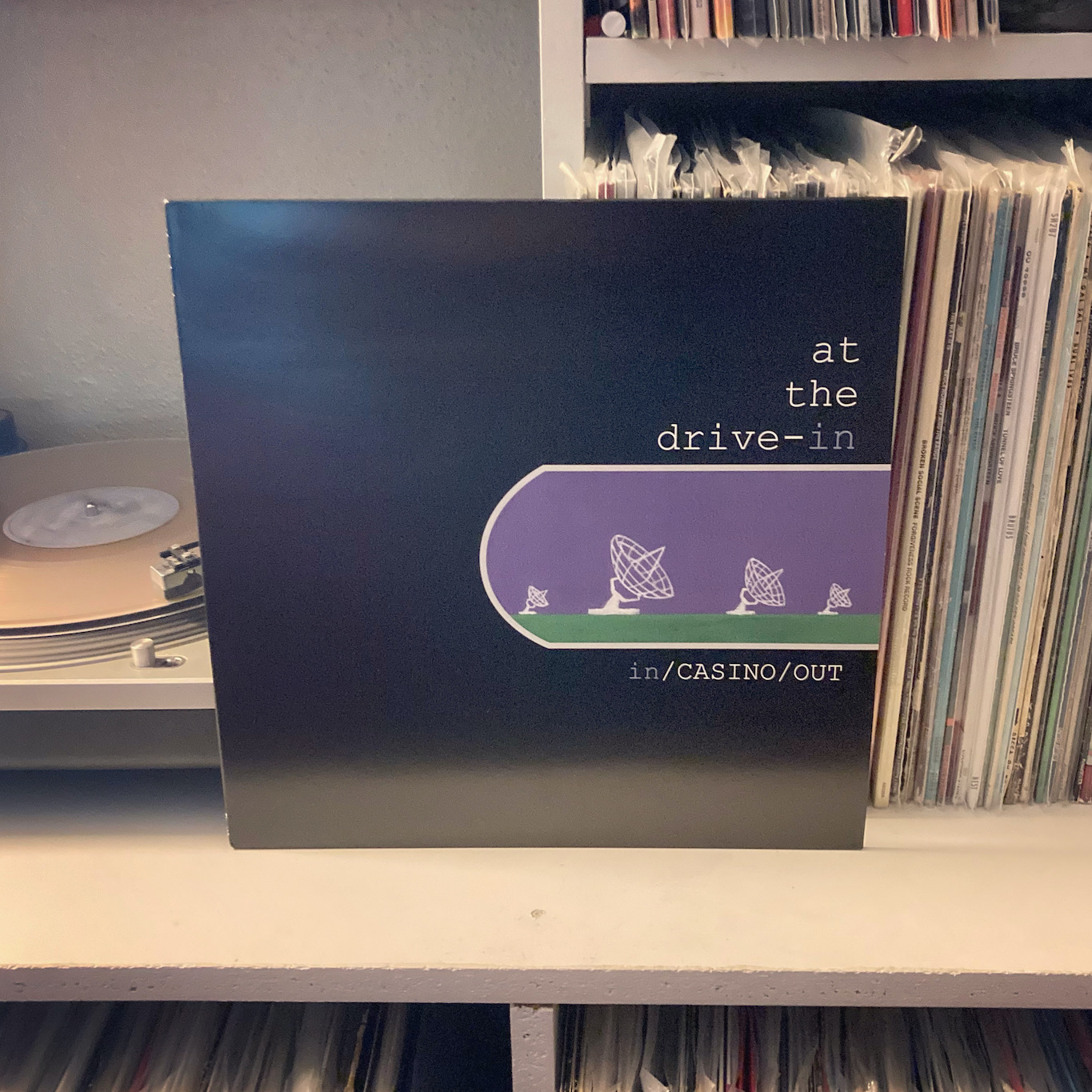
Many years ago, I said that Relationship of Command was undisputedly the best record At the Drive-In had ever released. And while it remains my favorite, I can’t deny the fact that my 2013 claim wasn’t influenced by the astronomical price that vinyl copies of In/Casino/Out were commanding.
As fortune would have it though, I recently acquired a large lot of records from a friend that included an unreal number of classics for a more-than-agreeable price (thanks, Stephen), which included this record that, historical revisionism aside, means a great deal to me (and a whole lot more that will be reviewed in the coming days and weeks).
While the band had been active for four years before this with two EPs and a full length to their name, In/Casino/Out is really the album where they became the At the Drive-In that would become post hardcore legends.
Allow me to admit right now that I have never actually “gotten” Acrobatic Tenement. It contained barely a seed of the greatness the band would go on to achieve. And besides, the essential element of ATDI to me has always been the guitar interplay between Jim Ward and Omar Rodriguez. But on their debut, Rodriguez was relegated to bass duties. He moved to guitar for the El Gran Orgo EP, but Ward was absent.
In/Casino/Out saw Ward’s return, and the chemistry between him and Rodriguez is the stuff of legends. Just listen to the mixture of Ward’s muscular hardcore power chords and Rodriguez’s spastic leads on “Pickpocket” or the serpentine twisting of “Napoleon Solo” (which might be the song that comes to mind most often when I think of ATDI).
Of course, those aren’t the only two members of the band, whose live chemistry made for what is still considered one of the most electric live shows in rock and roll history (their appearance on Letterman is of particular note). That energy is captured here with great effect, no doubt due to the fact that the album was tracked live with minimal overdubs. That approach put a few sloppy moments onto the tape, but that’s a small price to pay for the sheer electricity of tracks like “Shaking Hand Incision,” the brooding “A Devil Among the Tailors,” and the explosive opener “Alpha Centauri.” Not to mention “Chanbara,” which features plenty of the Latin rhythm that would underpin ATDI’s trademark sound, and that Cedric and Omar would explore more fully with The Mars Volta.
But for all the combustible hardcore energy, there’s plenty of more melodic moments—even some outright pop. If anyone has ever been confused about why such an aggressive post hardcore band always comes up in conversations about emo, they should give this record another listen, because this is Real Emo™. “Hula Hoop Wounds” bounces twinkly guitars and a melody line that begs to be sung along to. Closer “Transatlantic Foe” flirts pretty hard with pop punk in the choruses. “For Now…We Toast” goes way past flirting into make out territory. The mournful “Lopsided” shifts between angular chord hits in the choruses and major key guitar arpeggios in the choruses in a way that wouldn’t be out of place from Sunny Day Real Estate—until the fiery crash in the bridge.
Their delicate sensibilities are brought to the forefront by the ballad “Hourglass” which sees Jim Ward playing piano and providing lead vocals (a recent discovery for me, who has always thought Cedric sounded sick on that song). That track is one hundred percent emo, landing far closer to Mineral and The Get Up Kids than the Rage Against the Machine comparisons that ATDI would garner in mainstream critique.
As for the battle between In/Casino/Out and Relationship of Command, the jury is still out. Neither album is inessential, though they show quite different faces of the El Paso outfit. While Relationship of Command is the album I most usually gravitate to when I go to listen to At the Drive-In, most of my favorite ATDI songs are actually on this album. As a young emo kid in the early 2000s, both albums were treated with absolute sacredness, and so now that I’ve acquired a copy, I offer sincere apologies for any diminishing statements I’ve made for this album in the past. I shall listen several times more to make atonement.
Pingback: Record #808: At the Drive-In - Vaya (1999) - A Year of Vinyl